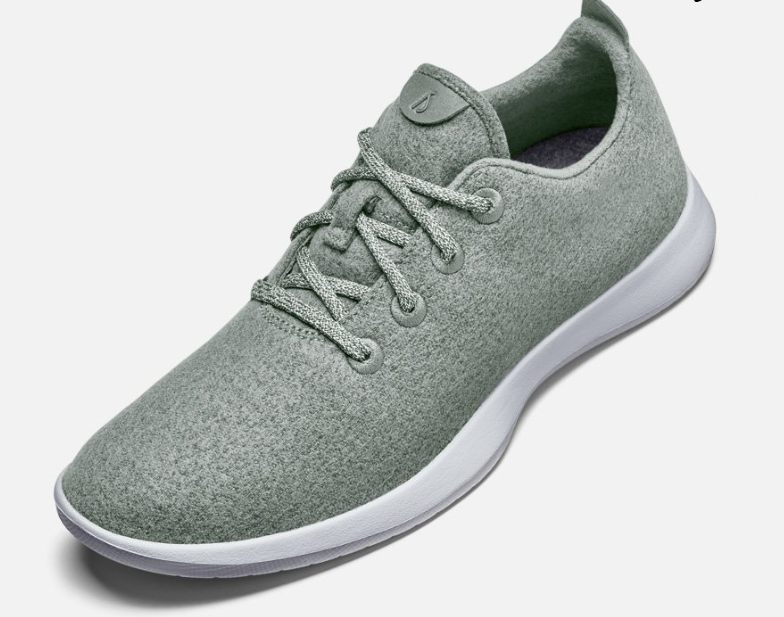
Is it possible to share coats with this little guy? Sustainable wool may be the answer.
As we enter fall, feelings of bitter winter chill are already surfacing in my body despite the unusually high temperatures we’ve had in the Northeast. I’m reacting to memories of polar vortexes past, when no less than four layers were required to keep out frostbite on the way to work. But I’m also craving the hygge-esque feeling of nesting at home in soft twilight, sipping tea, and wrapped in all my coziest knitwear . . . until I ask myself where those knits came from.
As a knitter and oversized-sweater-addict, I have a fair share of wool items that I bought or made pre-veganism, and continue to cherish despite their sheepish origins. Considering my 2017 winter wardrobe, though, it’s really hard to imagine what purely vegan textile could replace the coziness of wool itself, especially when it’s an item made by hand.
That’s why I was so excited to learn about several companies’ forays into sustainable wool. Despite my initial hesitation over this apparent oxymoron, I was pleasantly surprised to learn that it really is possible to gather wool in a way that causes no harm or pain to sheep–aka cruelty-free wool.
First, some (not-so-obvious) facts about wool. The kinds of sheep that are shorn for wool are typically only grown for that purpose, meaning they are not destined to be slaughtered. In organic wool farms that practice ethical care, the sheep are pasture-raised and shorn once a year. The rest of the time, they are left to do their sheep things. Wool is also biodegradable, and the lifespan of wool is much longer than many other fabrics, such as fast-fashion cotton.
Wool gets washed a lot less in cold temperatures (often by hand, not machine), which means it saves water & energy, and doesn’t contribute to the microplastic leaching problem. Furthermore, all shorn wool is used—finer grades for clothing, and coarser grades for rugs, etc. All this makes wool perfectly in line with the slow-fashion, less-is-more consumer mindset that’s necessary for a cleaner fashion industry.
So how do we ensure that the wool we wear is cruelty-free and ethical? The International Wool Textile Organization is at the helm of ensuring a standard of ethical care among wool farmers around the world in order to continue to provide wool as a sustainable textile. The IWTO takes their definition of “animal welfare” from the World Organization for Animal Health (OIE). Particularly relevant to this discussion is the statement on “handling,” which ensures a non harmful relationship between person and sheep:
The handling of animals should foster a positive relationship between humans and animals and should not cause injury, panic, lasting fear or avoidable stress.
Ensuring that multiple countries comply by these is complicated but key, since the production chain of wool crosses so many borders: consider not only the farmers, but where the wool is then cleaned, spun in to yarn and other textile-friendly materials, manufactured, sold, etc.
Now, I know what you’re thinking: this all sounds great, but how can I know if my wool is cruelty-free? It’s as simple as doing a bit of online homework. AllBirds, a trendy wool sneaker company, has a statement right on their website that their products are ZQ certified; the New Zeland-sourced merino wool used on the “upper” of their shoes comply by the aforementioned standards of animal welfare. Patagonia is another company that will offer only cruelty-free wool from Fall 2018 onwards; in the past, the brand has experimented with reclaimed wool and is now using its deadstock wool to avoid over-consumption.

AllBirds Women’s Wool Runners, $95
If you want to keep more than your feet warm this winter, turn to Theory, who upon their 20th birthday decided to revamp their wool suits—a classic in their collection—with the launch of “Good Wool.” Minimizing the production chain by working with an Italian mill with direct supply from a fourth-generation Tasmanian farm, they’re making these suits as green as possible. Per Theory’s website, the farm is “Deeply committed to both the animals and the Earth, they produce ethically grown, extra fine merino wool from a free-roaming herd. Nurturing the farm’s bio-diversity, owners Julian and Annabel von Bibra practice environmental stewardship in partnership with the Bush Heritage and Tasmanian Land Conservancy. Today, the von Bibras also offer training in the Beaufront traditions of animal welfare and care.” The potential impact of this development is particularly meaningful coming from a brand like Theory; Elizabeth Segran writes in Fast Company, “As the brand launches the collection, it is being transparent with the customer about exactly how the products are made, so this is something they eventually come to expect from all the brands they buy from.” Prices are on-par with the rest of their items, which means consumers don’t need to lay out extra green to go green.

Theory Good Wool Blazer Dress, $495
If you’re looking for a one-stop ethical shop, check out Merino.com, where you can learn about the wool industry and click “buy” without having to worry about companies’ compliance.
Cheers to one more reason why we love winter (clothes) . . . and why we need to ensure it sticks around for a few thousand more years.
Also by Jennifer: Get The Ethereal Skin Of A Brooklyn Goddess With These 3 Rules
Organic Cotton Underwear & Sustainable Lingerie That Look And Feel Like Pure Bliss
Get more like this—Subscribe to our daily inspirational newsletter for exclusive content!
__
Photo: Pexels.com; allbirds.com; theory.com




